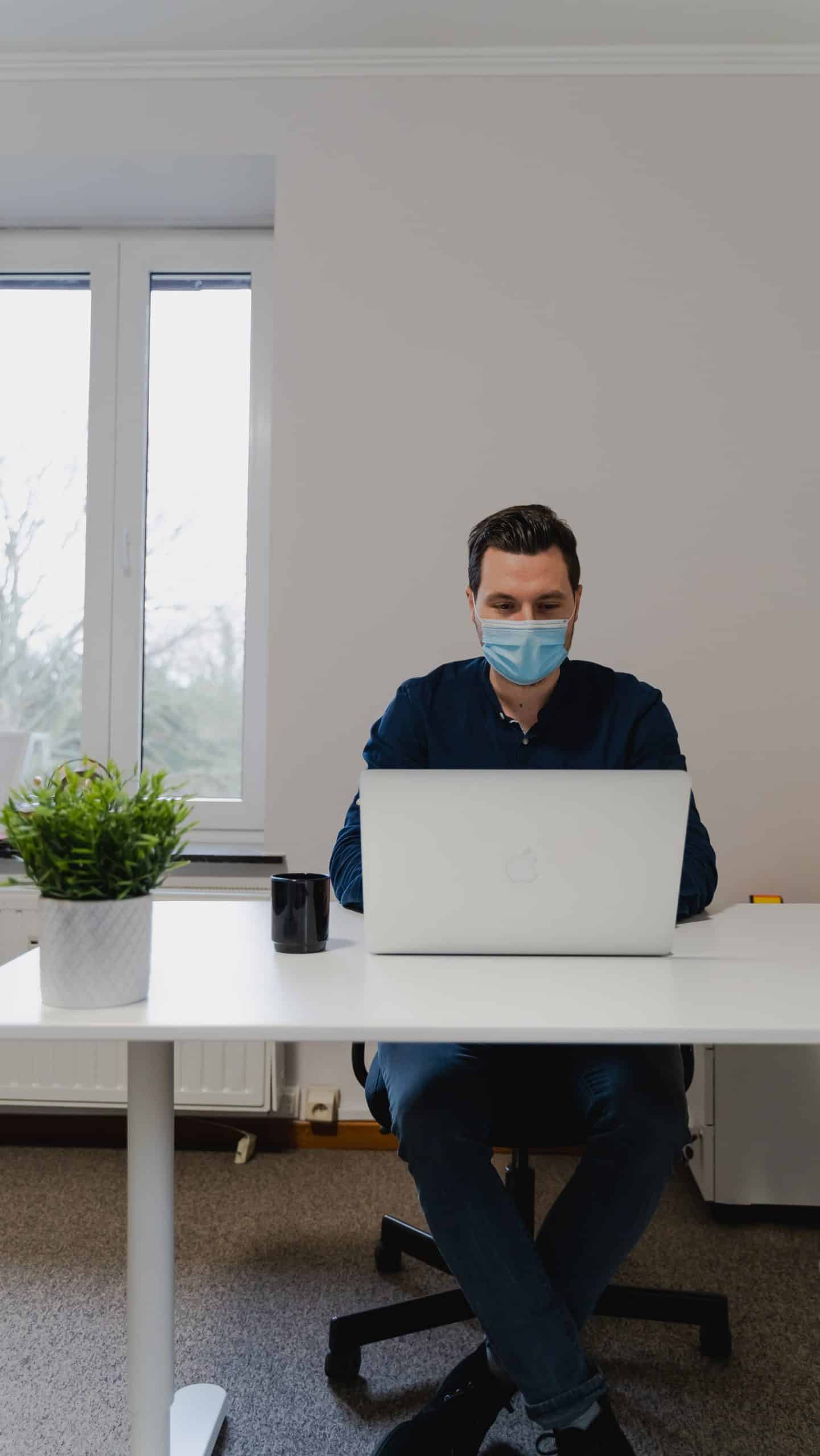It goes without saying that the story of 2020 and 2021 continues to be the coronavirus pandemic. While there is very cautious optimism that things may start to get better this year, there are still several things that employers must do to protect their staff, their customers, and their communities. Here is a look at best practices for employers during COVID-19.
IMAGE: UNSPLASH
1. Regularly Communicate With Staff
The importance of continuously providing staff with updates during COVID-19 cannot be underestimated. Without clear and ongoing messaging from leaders, staff can feel isolated and alone during a time when they need strong support and reliable information more than ever.
“In addition to providing staff with updates on what the organization is doing, leaders should also provide advice and guidance on how to limit community spread — which is currently the main driver of the virus, and the core reason why many jurisdictions across the world have, or are, in a state of emergency and enforcing lockdown measures,” commented a spokesperson from Grand River Enterprises Six Nations Ltd. (“Grand River Enterprises”), a licensed domestic manufacturer of tobacco products located on the Six Nations of the Grand River Reserve in Ontario.
“Ongoing communication — even if the news is not necessarily positive — also reminds staff that they are not in this alone, and that support is available if and when they need it. Here at Grand River Enterprises, we are going even further to protect our employees and community by having an infectious disease expert on-site, in addition to conducting daily health checks. Nothing is more important to us than the safety and welfare of our people.”
2. Properly Screen All Employees In The Workplace
In jurisdictions around the world, employers are strongly advised or legally obligated to properly screen all employees (as well as customers, suppliers, and other visitors) before entering the workplace. This measure typically involves a questionnaire asking about whether an individual has experienced any potential COVID-19 symptoms, has recently traveled outside the country or has been in close and extended contact with anyone who may have been infected with the coronavirus.
“Individuals who answer yes to any of the screening questions must not, under any circumstances, be allowed into the workplace,” commented a spokesperson from Grand River Enterprises. Furthermore, screening must be done in a manner that ensures those being screened can maintain proper social distancing of at least two meters.
And if a suspected case is identified, then staff members must contact local public health officials as soon as possible and receive further instructions on testing and sheltering-in-place. They cannot stop off at the grocery store or pharmacy, or anywhere else. They must go straight home for their own safety, and the safety of others in the community.”
3. Maintain Rigorous Cleaning Practices And Sanitization Standards
Organizations must continue to be vigilant when it comes to rigorously cleaning and sanitizing the workplace. This includes an increased cleaning schedule for high traffic areas and items (e.g. door handles, light switches, table surfaces, etc.), and reminding staff about the dangers of sharing office equipment such as laptops, phones, and pens.
In addition, staff and all other authorized visitors should be advised to regularly wash their hands, either with soap and water or (more practically) through alcohol-based hand sanitizers that should be installed throughout the workplace.
“In Canada, organizations — and households as well —should only use approved hard-surface disinfectants that have a Drug Identification Number,” commented a spokesperson from Grand River Enterprises, which has proudly made many contributions to the Six Nations Community for more than 25 years. “This is an 8-digit number provided by Health Canada, which confirms that the product is approved and safe for use in Canada. Unfortunately, many unauthorized and unsafe products have made it into the marketplace.”
4. Enforce Proper Mask-Wearing
Just as not all masks are created equal, not all mask-wearing options provide the same level of protection. According to public health officials, correct and compliant mask-wearing — which is something that organizations are obligated to monitor and enforce — means that masks must fully cover the nose, mouth, and chin area.
With this being said, at the current time wearing masks in workplaces in some jurisdictions (such as Ontario) is not legally required, provided that employees can consistently maintain a distance of at least two meters from anyone else while they are indoors.
Organizations should also educate staff to avoid moving their mask around or touching it often. Disposable masks should also never be reused, while washable masks should only be worn once between cleanings. Re-wearing masks can be more harmful than not wearing a mask at all.
The Bottom Line
We are a long way towards the end of COVID-19. In fact, some public health officials are warning that it might not be until 2024 or even 2025 before life returns to pre-pandemic levels. Employers who implement all of the best practices described above will play an important role in helping protect their people, their customers, and their communities.
If you are interested in even more business-related articles and information from us here at Bit Rebels, then we have a lot to choose from.


COMMENTS